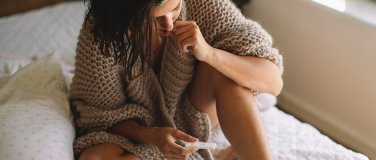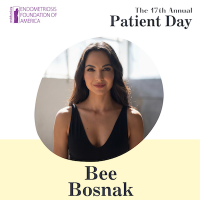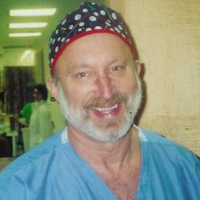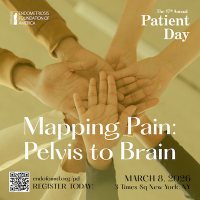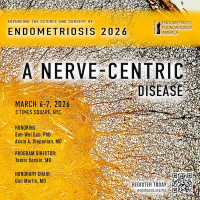
I got my first period just after I turned 18. Before then, my friends were already a few years into their membership to what I imagined was the cool club of ‘period-havers.’ I did not know it then, but I had polycystic ovarian syndrome (PCOS).
“But you’re so lucky,” my cousin told me every time I bemoaned my lack of a menstrual cycle. “Do you know how much pain I go through every month?” I replied that her pain, which I had witnessed firsthand, wasn't very appealing; she rolled on the floor, and groaned in languages and words that teenage-me did not yet understand. My cousin who became delusional with pain between the 11th – 14th of every month (ten years later, and I still remember the exact dates). We planned family events around her pain, and tiptoed around the house while she took restless painkiller-induced naps.
“Can nobody do anything for her?” I asked every month, and every month there was an older aunt to remind me that this was something that every woman had to go through.
A few years ago, she was diagnosed with endometriosis.
The older I got, and as I cohabited with more women in student dorms and workspaces, I witnessed more and more women in the kind of inexplicable pain that my cousin lived with all those years ago.
When it comes to women’s health, the experiences of African women are usually grossly underreported. This is due to a number of reasons, the primary one being cultural: the misguided notion that a woman should not only stoically endure the pain that comes from menstrual cycles, but also not talk about this pain, leads to misdiagnosis, improper treatment, and even more complications in the future.
In Nigeria, about 30-40% of women suffer from endometriosis.
* * *
Mari*, a Ghanaian woman who lives in England was diagnosed with endometriosis in 2009.
“It was frustrating,” Mari explains. “It took about seven years to get diagnosed in the UK, and I had a laparoscopy. Before diagnosis, it was difficult to get any respite because I didn't know what I was dealing with. There were a lot of maybes: maybe I didn't deal with pain that well, maybe I just had painful periods, maybe I needed stronger painkillers.”
Generally, gynecological conditions take a long time to get diagnosed, whether it be PCOS, fibromyalgia, or ovarian cysts. Women are left to endure constant pain and uncertainty while on this path towards diagnosis for their pelvic (as well as, in some cases of endometriosis) extrapelvic pain.
Endometriosis is a very frustrating condition to live with, Mari explains, because it is not as easily diagnosed as it should be. “A lot of African women have endometriosis and they don't even know due to lack of access to the kind of care that they need. And I think it's because it's one of those conditions which can't be identified as easily as it should. Women struggle for years until they get a diagnosis.”
Mari says that although the UK makes it a bit difficult to access care due to the postcode lottery, it is still a lot easier than living in Ghana. “Post-diagnosis is heaven because you know what you're dealing with,” she says, “And the NHS makes access to care better. I probably wouldn't have gotten this level of care in Ghana.”
* * *
“I was 11 when I first got my period,” says 30-year old Abby, a Nigerian woman living in Nigeria. “And I started having cramps when I was 13. I kept trying to toughen up but it was a lot of pain. Later, it wasn’t just cramps. My legs would go numb and I would be unable to walk properly. And I'd lie on the bathroom floor. I don’t know how this made a difference from lying on the rug. Maybe it was the cold or the hardness, but I always felt a bit better.”
As Abby got older, she was prescribed stronger medication and went from using paracetamol to Nurofencen, and later Mefenamic acid at the age of 18. “After a while I developed resistance to that, and in my last year in university, the pain started to get worse. I was in pain even when I was not on my period.”
In one of those episodes, Abby woke up suddenly at 5AM in a cold sweat. “I had cramps and this really urgent need to poop. But I was in so much pain I couldn't walk so I crawled from my room to the toilet in the hallway. The whole thing lasted about 15 minutes and then everything went back to normal.”
This happened once in that year and didn’t happen again until Abby’s second year in the university, when, one time, the pain was so intense it clouded her vision and she walked into a railing and collapsed.
Abby had paused here while explaining this to me. Was there anyone else I had spoken to who's had this exact kind of experience? she’d asked me. “I've done research, and I haven't found any similar symptoms with other women. Even the doctor I saw later thought it a bit weird.”
After these episodes, she went to see a doctor in London, who told her that she had either ovarian cancer or endometriosis. “I was about 21 at the time,” Abby says, “and I started crying immediately. But after a few tests, cancer was ruled out. The doctor said it was probably endometriosis, but there was no way to know for sure without a laparoscopy. He said if I didn't want to have kids yet, I should go on the pill. So, I went on the pill. I was on the pill for about four years.”
But four years ago, Abby went to see another doctor, who she described as an incredible surgeon.
“The surgery was pretty expensive: $30k. But I'd heard great testimonies. In the waiting room, I saw some Yoruba names, and I felt good: my sisters had been here. I was in safe hands.”
Abby saw Dr. Seckin of the Seckin Endometriosis Center in New York, who suspected severe endometriosis. She proceeded to schedule her surgery to be performed in six months due to the long waiting list.
Abby’s surgery was supposed to be two hours long but it ended up being four and half hours long. “I had so much endometrial tissue which had built up over time. I'm now 30 but I've been having cramps since I was 13, so I’ve had over 15 years worth of growth. I couldn’t walk for about three days post-op. But, for two years after, I had no pain at all. I would be on my period and wouldn’t even know. Now, I don't have the kind of devastating pain I used to.” Abby adds that her standard of living has also dramatically improved; whereas she used to plan her life around her periods, and always carried around a bag of painkillers, now she can use over-the-counter paracetamol and feel okay.
But Abby understands her privilege in being able to afford surgery. “Thankfully I was able to afford surgery. But I've been thinking of lots of women who cannot afford it. I've been having cramps since I was 13 and only got a proper diagnosis at 21. So I spent 8 years undiagnosed and suffering,” she says.
Like Mari, Abby also says that although a diagnosis is not a solution, it can ease the psychological toll that constant misdiagnosis or lack of answers cause for people struggling with pain. “I kept wondering for a long time: why am I in this excruciating pain? I had friends who lived their merry life while on their periods. So why was I different? I was at least glad to get a diagnosis and know exactly what my problem was.”
But in spite of this, there are fewer and fewer diagnoses being made in Nigeria, despite the fact that Nigerian women struggle with varying degrees of intense menstrual pain.
“I’ve always had really painful periods, but I wasn’t diagnosed until 2018 in the UK,” says Kemi, a pharmacist in Nigeria living with endometriosis. “I had a laparascopy when I was 25 to get diagnosed, and was put on Zoladex for six months to induce temporary menopause.”
Afterwards, Kemi was switched to Duphaston, and then back to Zoladex after a year of intense pain in spite of not having periods.
“The only reason I have access to these drugs is because I'm a pharmacist,” she adds, explaining that there are many women who don’t have access to pharmaceutical management of the disease. “Sometimes, women discover they have endometriosis by accident, from trying to conceive or after a terrible incident of period pain. It took 13 years to know what was wrong with me, and I'm one of the lucky ones.”
In the course of our conversation, Kemi repeatedly described herself as lucky. “I have to take painkillers every day, and I inject myself; I’m a pharmacist and so was my dad. My mom was a nurse. I grew up around needles, so I know what to do.”
She’s also trying to be more outspoken about endometriosis on social media, specifically about what it is like living with the condition as a Nigerian woman in Nigeria. She emphasizes that she encourages people to know that this pain is not normal and that they can always send her a message. “I'll keep talking about it,” Kemi adds, “and I want other women to know it's okay— you can talk about it too. And you’re not alone. It can be very lonely when you're dealing with everything that comes with this condition. Sometimes you feel like although your friends love you, they don't really understand. So, it’s always great to be in the company of women who go through the same thing and know how you feel because they have felt it, too. That’s why I think we need an Endometriosis Foundation in Nigeria. I hope that happens in my lifetime, and I hope I’m one of the people who make that happen.”
Right now, Kemi is already hard at work for the endometriosis community in her area with her efforts to be the go-to pharmacist for finding prescriptions that are not easily accessible for women living with endometriosis and other hormonal conditions. “I have access to a lot of these prescriptions because I am a pharmacist, but many women struggle to find the medications they need to make their pain bearable.”
In addition to making treatment and management more accessible, it is also critical that women living with endometriosis in Nigeria have a community that is filled with hope, information, and understanding.
These are the pillars of what EndoSurvivors International Foundation (ESIF), founded in 2017, hopes to achieve.
“ESIF was created to fill the gap in the lack of awareness and evidence-based education about endometriosis,” Olivia Nwankudu, founder of EndoSurvivors International Foundation, explains. “Many times when women get diagnosed with endometriosis, they know nearly nothing about the disease and how it can be treated or managed, despite living with symptoms of the disease through their teenage lives. By providing accurate information to patients, we help them to make informed choices regarding their health.”
One of ESIF’s goals is to reduce diagnostic delays for endometriosis particularly by targeting adolescent schoolgirls. “We understand that diagnostic delays are caused by a number of factors,” Nwankudu continues, “so we educate schoolgirls about the signs and symptoms of endometriosis in a bid to promote a treatment-seeking behavior among young girls who may be experiencing symptoms of the disease like dysmenorrhea (severe menstrual cramps) which interfere with their attendance at school, choices and activities.”
Since its inception, ESIF has educated over 9,000 teenage girls on the symptoms of endometriosis under EndoFound’s ENPOWR Project.
ESIF also has a thriving support group for women living with endometriosis in Nigeria. “We are currently fifty-four vibrant members in the group, which cuts across various demographics, socio-economic status, stages of endometriosis, geographical region, tribe or religion,” Nwankudu says. They host regular peer-led online meetings to share patient experiences, periodic learning sessions with guest medical experts such as gynecologists, as well as other women who have been living successful lives despite painful endometriosis, or women who have conceived despite endometriosis-associated infertility. The group is currently hosted via WhatsApp and receives at least one new request per week.
Proper treatment, proper management, and access to proper care is critical, and communities that encourage increased dialogue about menstrual pain matters, too, especially as taboo about period pain continues. “There's a culture of silence around [period pain],” Abby says. “I was out with my mum once and I mentioned I’ve had surgery and my mum yelled at me to keep quiet about it. I'm glad that people are constantly trying to raise awareness. I'm trying in my own little way, by encouraging women to check on pain that they think is abnormal.”




